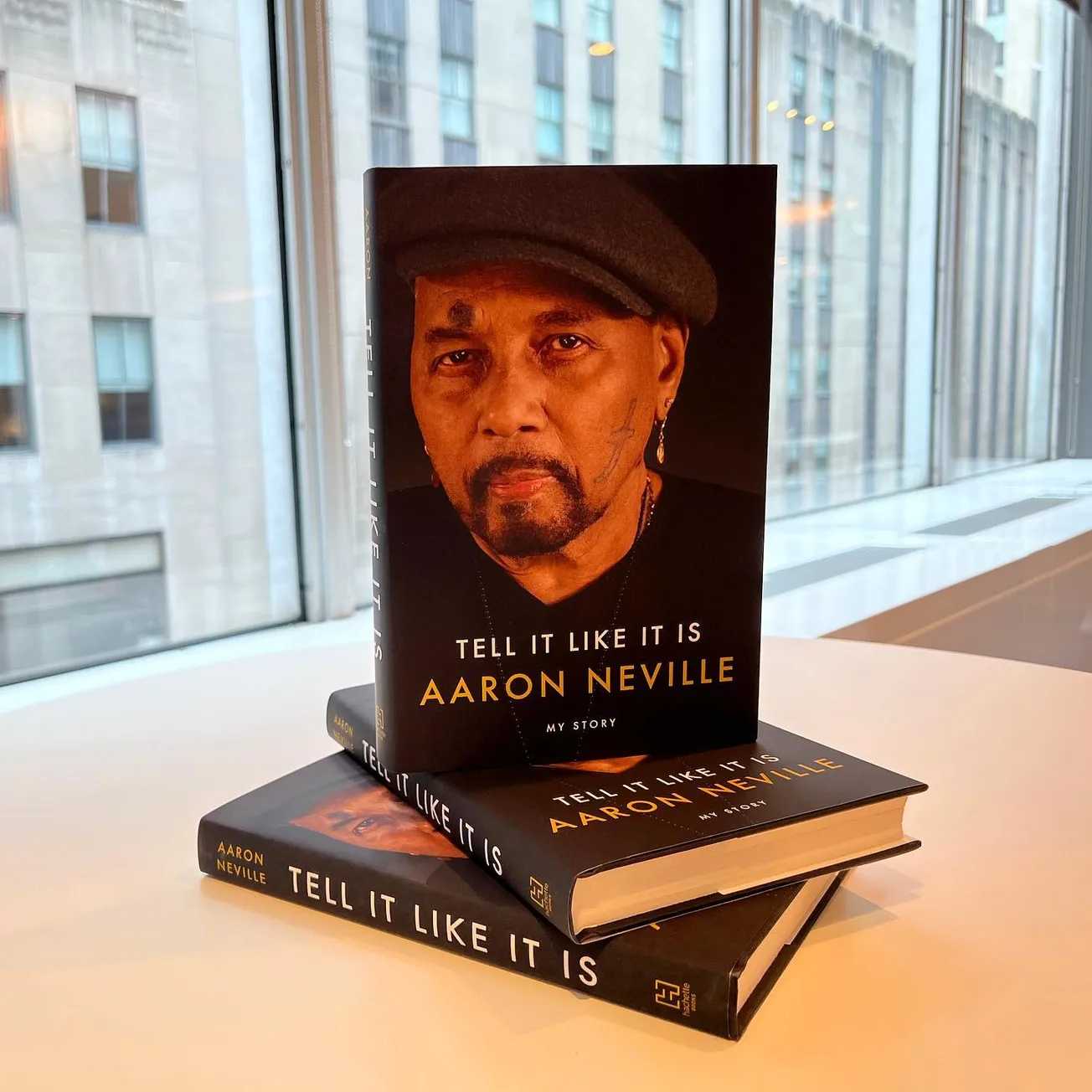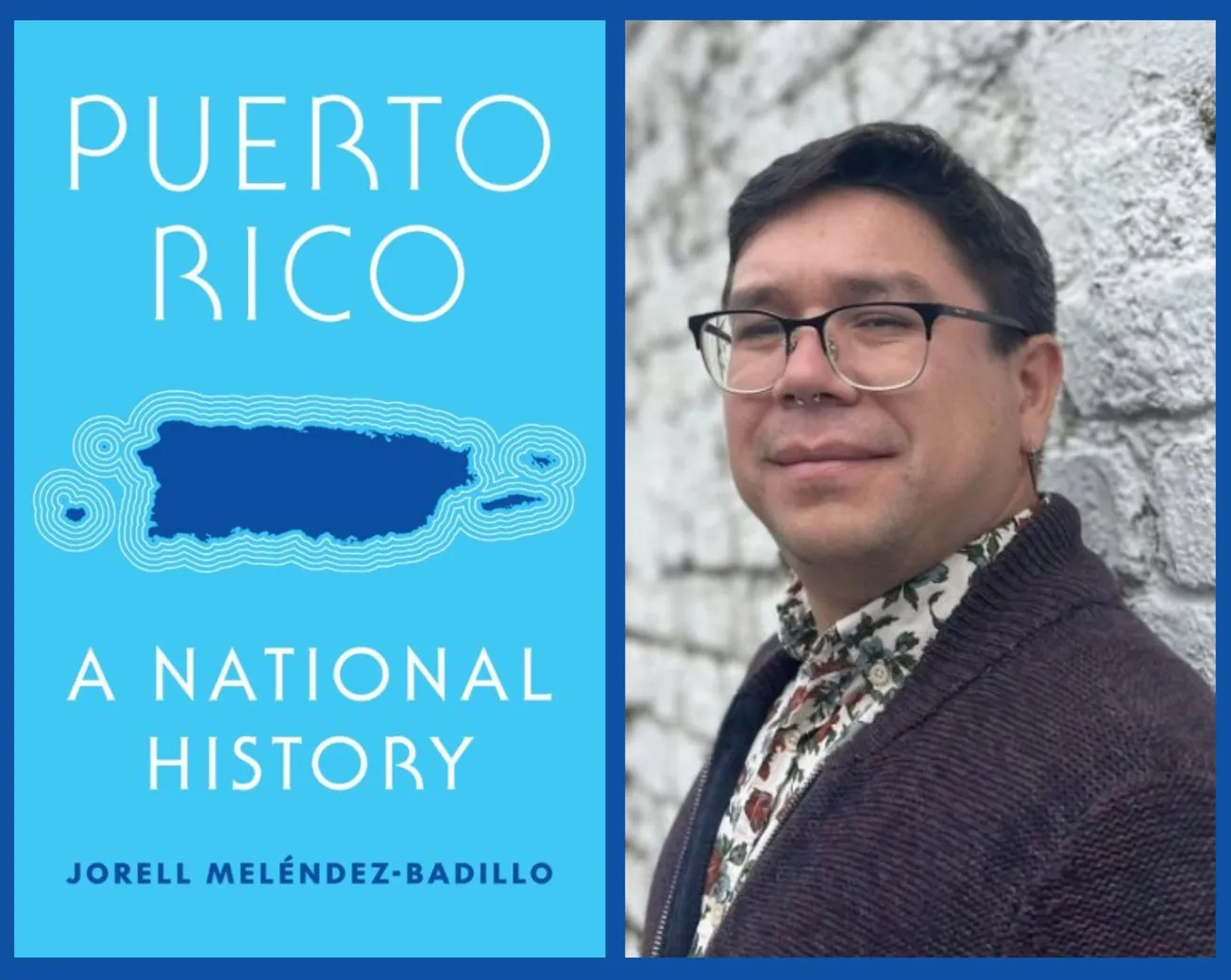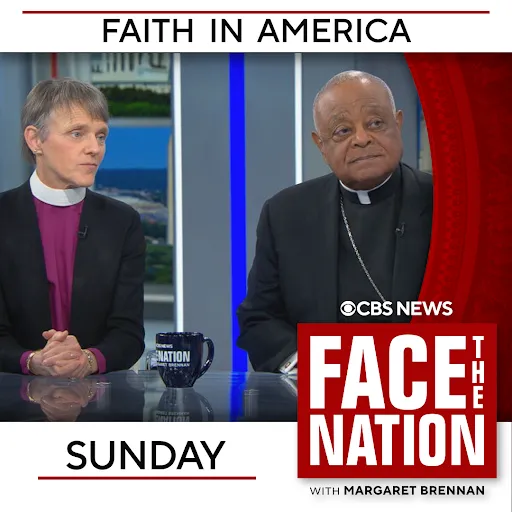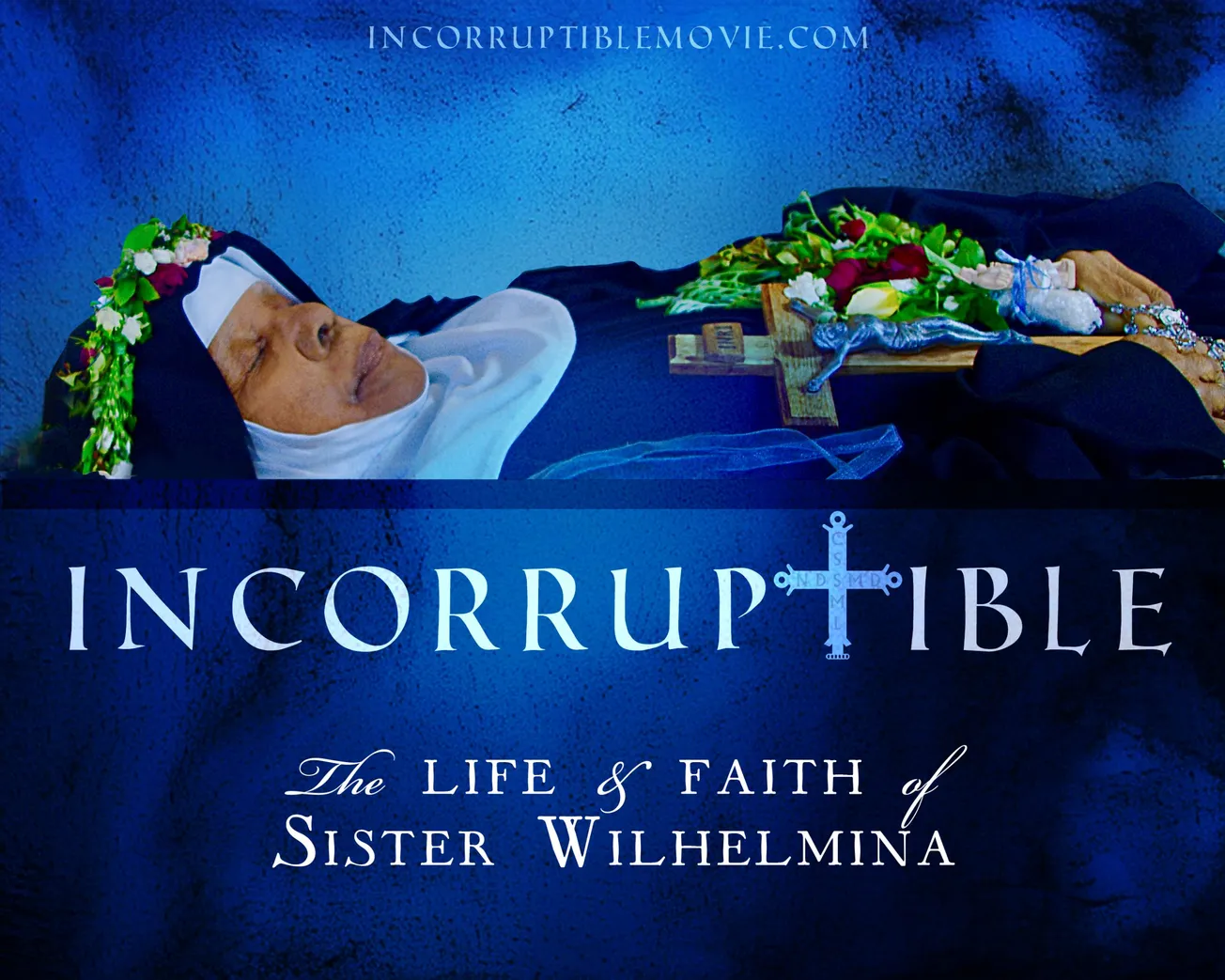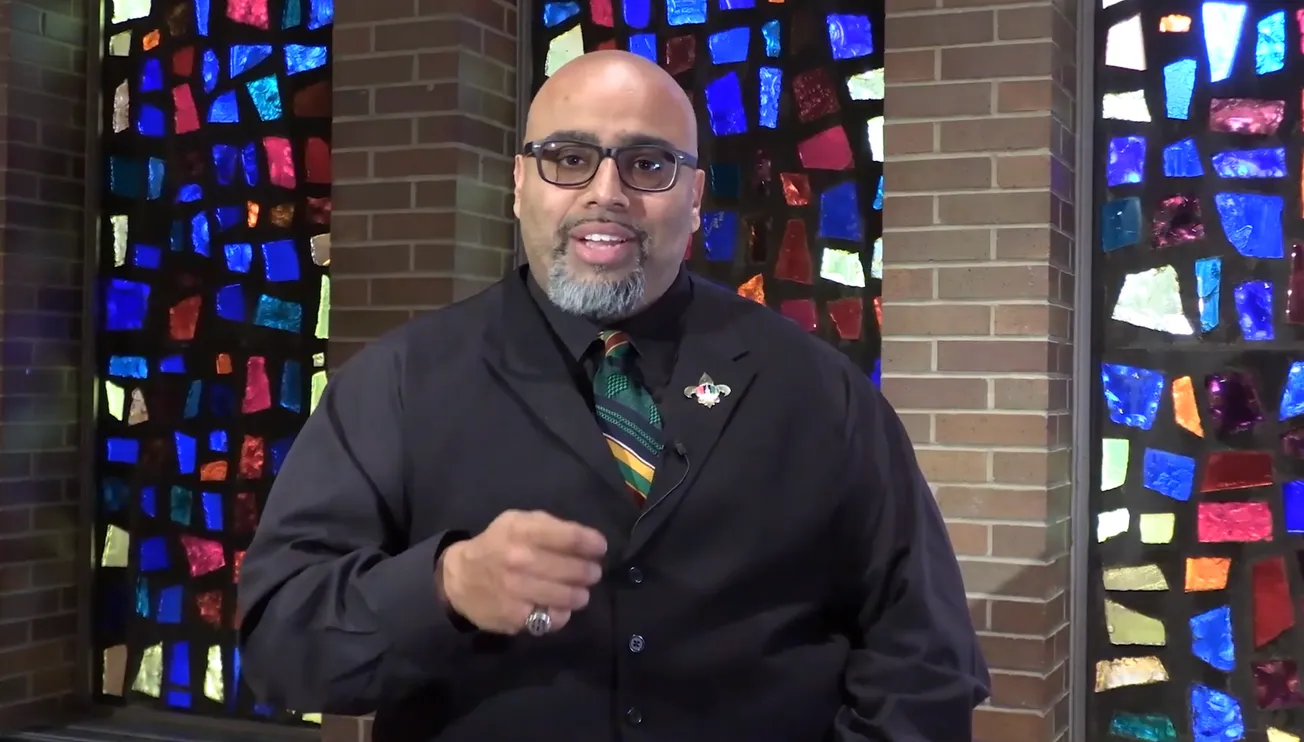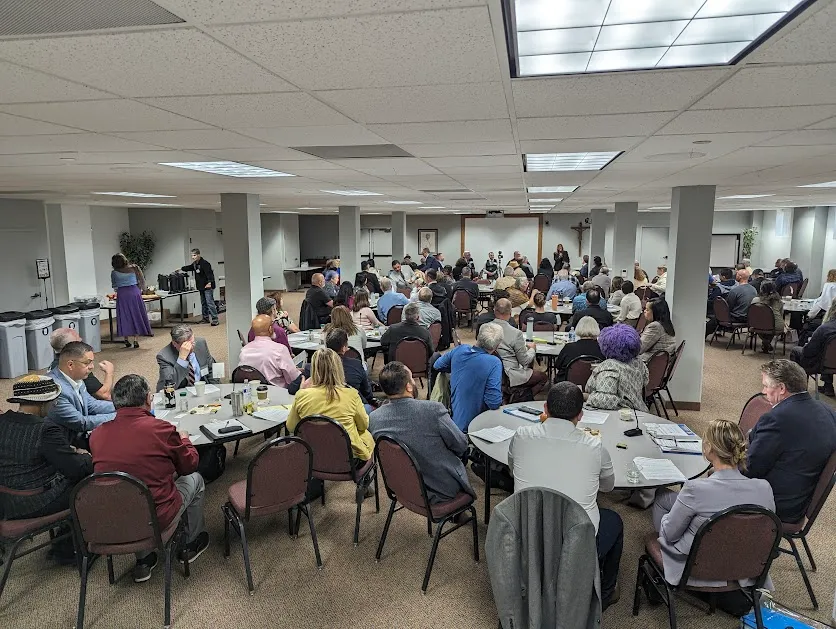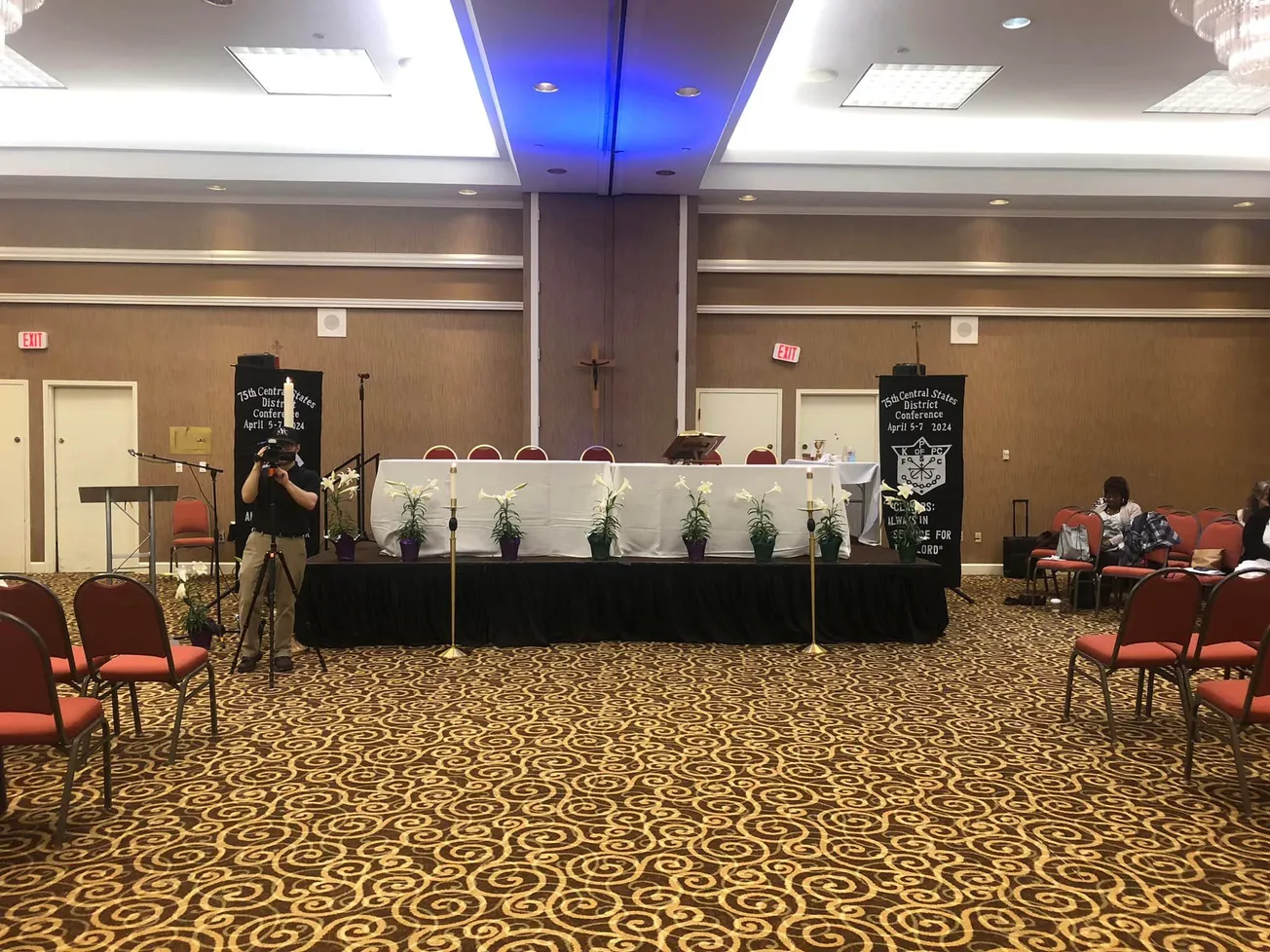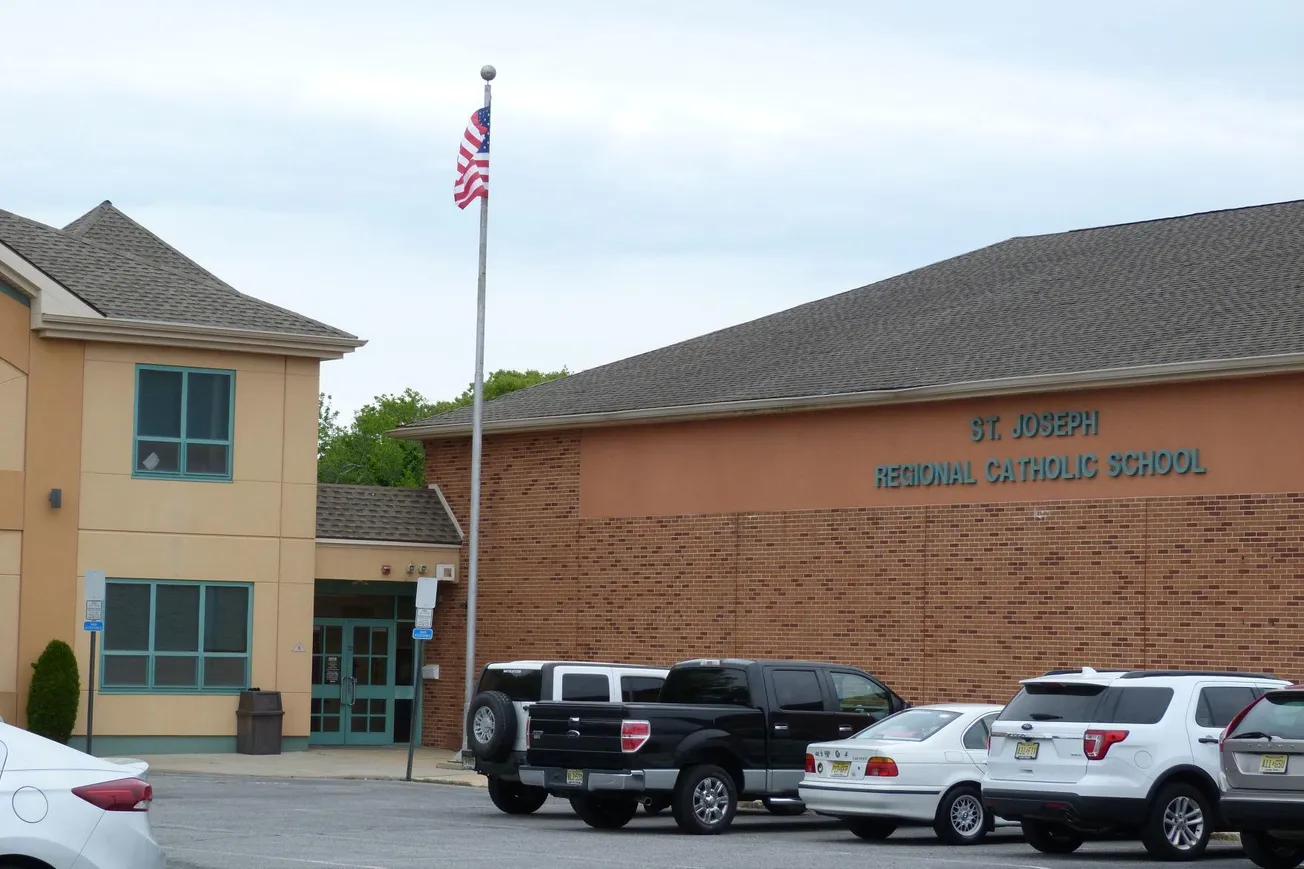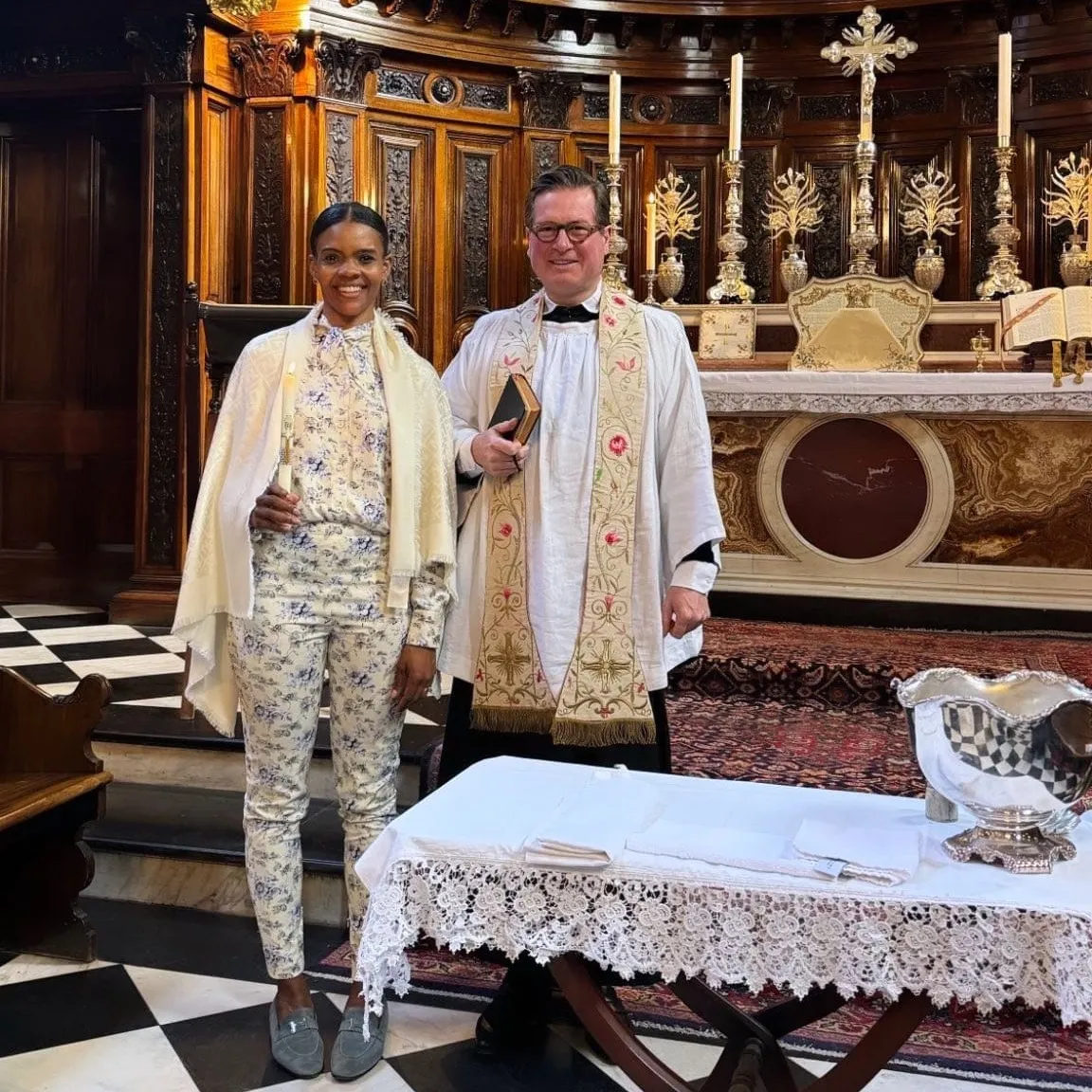Eight-time Grammy nominee Aaron Neville has accomplished much over his 60-plus-year music career, from humble beginnings in New Orleans to the top of the Billboard charts and back again. His most recent success came courtesy of a 2022 documentary detailing the history of New Orleans music and the living legends who embody it. (His feature on the soundtrack, alongside members of his music royalty family, became his fifth Grammy win.)
Neville’s new memoir “Tell It Like It Is: My Story” invokes the title of his first hit and hit bookstores this week. The devout Black Catholic recently sat down with Nate Tinner-Williams to discuss his faith, mental health struggles, comeback, and the relationships that made him who he is today
This interview has been edited for length and clarity.
Nate Tinner-Williams: You've had an immensely successful career over the past six decades and change, and I'm wondering what keeps you going.
Aaron Neville: Faith keeps me going, for one thing. I pray out in the yard, and just look at the trees and the sky and do my Rosary. And my wife Sarah, she's behind me, pushing me. We work out together and keep in shape, you know? So faith and love.
NTW: That's wonderful. I understand those are two of the major themes in your new book, your memoir, which is out this week. When did you start working on that?
AN: Maybe about four or five months ago. I worked with Beth Adelman, and we did it on Zoom. She was at her house. I was at my house. But the first thing she said was, “Aaron, I want the book to be in your words, not mine.” So that's what we've done. Put it in my words.
NTW: So that experience of writing a book, what was it like going back through your life and through your struggles and putting it on paper?
AN: It was a roller coaster of emotions. Going through a lot of that stuff. I had to stop a minute and take a deep breath and think about how I got to where I am.
NTW: Absolutely. And what impact do you think it might have on the community in New Orleans?
AN: Well, I mean, it's telling my story that began in New Orleans and Calliope Projects on up to the 13th Ward: All the places me and my brothers played music: And I talked about the churches I went to, like the St. Ann’s Shrine on Ursuline Street and Our Lady of Guadalupe Church on Ramport, which has the St. Jude Shrine. I visited there a lot.
NTW: Yeah, I used to live in New Orleans myself for several years. I loved going to Our Lady of Guadalupe.
AN: I used to sing at Midnight Mass the song I later recorded that went “Lovely Lady Dressed in Blue, teach me how to pray.” When I was in about 6th grade, I had to stand in front of the class and recite it. My mother used to bring me there to the church to turn me on to St. Jude.
NTW: I guess it worked!
AN: Yes. I've seen a lot fall by the wayside on my journey.
NTW: I understand you've credited a few things for your longevity over the years, one being St. Jude and another being your wife. Could you say more about that?
AN: Well, it started with my mother and my first wife, Joel. My son Ivan used to say, “Daddy, you know, it's sort of like you’re one of the kids.” I felt the same way, as if Joel raised me. My sister, Athelgra, she’s been my buddy all the way through life, since she was born.
My present wife, Sarah, she saved my life. I was on a downward spiral after Joel passed, after being together since I was 16 years old. It was like a big empty—I can't even explain it, but it was just an empty spot in my life that I couldn't handle.
Joel had cancer and they gave her all these meds and she didn't like taking them. So she had a drawer full of everything you can think of. Having been introduced to opiates before, that's what I fell into after she died because I felt hopeless. I felt like there weren’t any more answers—until I met Sarah.
I went to the pills for whatever you want to call it, and nobody knew what I was doing. I would go on the road. I had my own thing that I was going through by myself. And the pills weren’t really helping me, but it was a distraction, anyway.
When I met Sarah, we had been dating a while and we were getting ready to go to a restaurant. I went in my pocket to get the car keys and about 15 Vicodin fell on the floor. She had dated a guy who was a drug addict before, so she was street-smart. She said, “I'm not going through this again.” So I made a choice. It was her or the pills and I took her. And here I am today, 16 years later.
NTW: That's incredible. I know you call her your “earth angel” in the book. It does sound like she was sent to you from God.
AN: Yeah, her and Joel. Because [earlier in life], I was going through a lot of stuff with my business managers and all that and getting ripped off. She saw through that and cleaned that up for me.
NTW: That was another thing I wanted to ask about, because I didn't know that between the early successes of your career and when you came back in the 70s, you were working odd jobs to be able to provide for your family. From my time in New Orleans, I know that a lot of musicians in the city are working musicians and often they have to work other jobs. It seems like that's kind of the story of New Orleans music. Where do you think people get the idea that every musician who's had any success is living in luxury somewhere?
AN: I have no idea. In those days, I was gigging on the weekends and unloading cargo ships during the week of painting houses or digging ditches or rolling wheelbarrows or laying cement or whatever.
NTW: And this was after you had made the Billboard charts.
AN: With “Tell It Like It Is,” yeah. It was like an adventure. People ask, “Well, you're not angry because you didn't get paid?” I got maybe about $10,000—my manager at the time, Joe Jones, got that for me. I was able to buy my dad a car.
Now I can say I'm not angry; I think God had a plan and He knew I wasn't ready for that because I probably would have been dead. I probably would have been in the—what do you call it? The “27 Club.” All them guys that died at the age of 27. Jimi Hendrix, Janis Joplin, and a bunch more.
NTW: Was that something you were thinking about at the time? Those were your contemporaries. Were you looking around and thinking—
AN: No, I just had blinders on, looking straight ahead, you know, with a one-track mind. When I was 16, I started doing heroin. Your brain falls in love with it, although it doesn't mean you no good. It'll be telling you it loves you, but it's going to really turn on you with a vengeance.
I had to go through a lot of stuff and I wrote a song that says, “It took me who I was and where I've been to make me who I am.” So I feel like I now have compassion for a lot of people who are going through the same thing because I can agree with it. Been there, done that.
NTW: That's powerful to have that experience and be able to share it with the world.
AN: After I got clean and everything, people over in England—an organization called B.A.N.A.N.A.S. The British Awfully Nifty Aaron Neville Appreciation Society. They used my narrative to help addicts come down off of drugs and stuff. And they would use my voice to help them.
Then this lady in Las Vegas told me about a little boy, about six years old, who was autistic and his parents couldn't do nothing with him. They said he would flop around like a seal. They had to put him in, like, a rubber room. They said the only thing that would calm him is when they put a headset on him with my voice coming through there. I said, well, all I can feel is that the God in me was touching the God in him.
NTW: I definitely get a soothing feeling when I listen to your music as well. So I think there may be something to your voice.
AN: That's why I call it medicine. I can't explain it. St. Augustine said, “He that sings prays twice.” You ever heard that?
NTW: Absolutely.
AN: Yeah. So it was always a prayer. I don't care what I was saying. My voice was a prayer coming from my heart and soul, filtering to God.
NTW: Some of my favorite music of yours is the albums you've made that are explicitly gospel songs and Christian songs. What is it like being able to make that kind of music?
AN: It was great. I had been wanting to do it, but the record company wasn't ready, so I made a pact with them, A&M Records, that any other album I did, I could at least add one spiritual thing. With Linda Ronstadt I did “Ave Maria.” The next one, with Steve Lindsay on “The Grand Tour,” I did “The Lord's Prayer.” And then on the next one, “The Tattooed Heart,” I did “Crying in the Chapel.” I mean, that's spiritual to me because that's something I heard when I was a kid, by Sonny Til and The Orioles.
So after my contract was up, I got back with Steve, who produced my other two albums, and told him I wanted to do some gospel. But he also did my Christmas album, “Soulful Christmas.”
NTW: One of my favorites.
AN: Mine too. Like I said, I can put it on, and it soothes me! The intonation of the voices goes through me like lava.
NTW: And you said Steve Lindsay helped you to make more of that kind of music.
AN: Yeah. I did the first one, called “Devotion,” and I got to do songs that I love, like “Jesus Loves Me.” And that's always the little kid in me singing “Yes, Jesus loves me.” The next one I did was called “Believe,” and then they put it together and called it “Gospel Roots.” So it was like a two-album set with EMI.
NTW: I know your rendition of “The Lord's Prayer” is also very popular. We sang it at church all the time in New Orleans. I don't know if it came from you, but that's who I associate it with.
AN: Yeah, well, that was one of the first things I wanted to record. I don’t know if it was the first song I did for the album or not, but while we were doing the session, it was always in my heart, in my soul for me to put it on this album.
NTW: Well, it certainly had an impact.
AN: Like I said, it’s medicine.
NTW: Yes. Spiritual medicine.
AN: And “Ave Maria,” that was a song that I heard at St. Monica Catholic School. I never knew all the words, I just knew the refrain, but it used to always just touch my heart as a little kid. I'd hear the choir singing it and it was just like medicine even back then. Yeah.
Later on, I was going through some changes at the time. My wife Joel had left. I was in the streets, you know, just lost. I was sitting in the gutter one day, round by the borough. I called it the snake pit. I didn't know what I was feeling, but I started singing “Ave Maria.” I just knew that the refrain, but it got me up out of that gutter and gave me the strength to push on.
NTW: Wow.
AN: Linda Ronstadt, when I met her, she came to New Orleans for the World’s Fair in 1984 and she came to see The Neville Brothers. I called her up on stage to sing with her. She told the press that she never did improv stuff like that, but she wasn't going to say no to Aaron Neville.
I asked her for her autograph, and she said, “To Aaron, love. I'll sing with you anytime, any place, anywhere, and in any key.” The next year, me and Allen Toussaint were doing a thing for the homeless and hungry in New Orleans and we called her down to do the benefit. We were sitting in Allen’s studio with her manager, Peter Asher. With Linda being brought up Catholic and me being a Catholic, we first came up with the idea of doing “Ave Maria”. And we did it in harmony. Peter said, “Man, y'all should do a record together.”
I was trying to be calm, but I was like a little kid in a candy store. So she suggested to me to do it on the album that she produced. She co-produced with George Massenburg and she got me to do it at Grace Cathedral in San Francisco with the all-boys choir.
NTW: Alright now. That's my city.
AN: It was real special. I listen to it now. I can still see them, the kids singing.
NTW: And you continue to collaborate with her throughout your career, right?
AN: Yeah, we did a lot of stuff. When I heard that she had Parkinson’s, it hit my heart. She said she couldn't sing anymore. I'm not singing anymore either, because I have asthma. Just trying to keep in shape anyway. But if I was able to do another song, I would definitely want it to be with Linda.
NTW: Well, I hope somehow it can happen.
NTW: I know I read about your retirement recently, but then I saw you in a movie after that, so I said, well, I guess he's not totally retired. The 2022 documentary, “Take Me to the River: New Orleans.”
AN: Oh, that was filmed some years ago. 2016.
NTW: What was that experience like working on that movie and that music?
AN: Well, the guy who was producing it, Eric Krasno, he produced my last album, “Apache”, which I did “Stompin’ Ground” on. They also wanted to do “Hercules,” which I did with Allen Toussaint back in the day, in 1972. So we did those two songs. But I got a Grammy for the cover of “Stompin’ Ground.” So now I’ve got five Grammys.
NTW: Yes, indeed. I was paying close attention when that happened. I was very excited.
I heard that there's also an upcoming follow-up EP from them called “Lagniappe.”. Do you know if you're going to have a song on that?
AN: I haven't heard anything about that.
NTW: Okay, well, then I guess we may both be surprised.
AN: That'd be cool.
NTW: So now, in 2023, on a scale of one to ten, how retired would you say you are?
AN: I'm retired. Like I said, my asthma doesn't let me hold the notes like I used to. Like Linda says, I don't want to cheat the fans. For them to be looking for this and not getting it. I tell them I've got a lot of records already recorded so they can still listen to my voice.
NTW: That may be an understatement. You've got a ton of music. Well, retired or not, you're a legend in the community, and I thank you so much for sharing with me today.
AN: Well, it's a pleasure talking to you, Nate. You have a great one.
Nate Tinner-Williams is co-founder and editor of Black Catholic Messenger.


